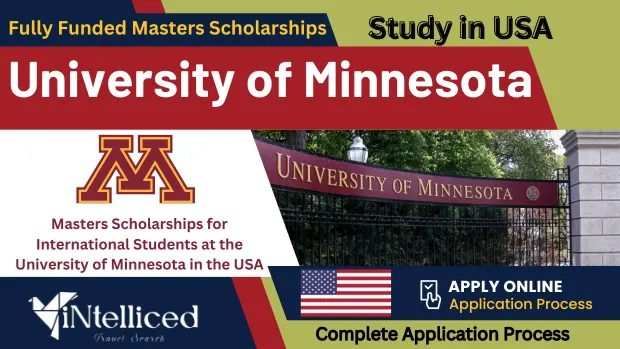Discover essential steps and tips on how to apply for scholarships for international students in Europe. Learn about eligibility, application processes, required documents, and key deadlines to secure financial aid for your studies abroad.
Applying for scholarships as an international student in Europe can be a challenging but rewarding process. Scholarships can significantly ease the financial burden of studying abroad, and Europe offers a myriad of opportunities for international students. This comprehensive guide aims to walk you through the various stages of applying for scholarships in Europe, including identifying opportunities, preparing your application, and maximizing your chances of success.
Scholarship Landscape in Europe
Before diving into the application process, it is crucial to understand the types of scholarships available and the general landscape of financial aid in Europe.
Types of Scholarships:
- Government-funded scholarships: These are scholarships funded by the governments of various European co6untries. Examples include the Erasmus+ program by the European Union, DAAD scholarships in Germany, and Chevening scholarships in the UK.
- University-specific scholarships: Many universities in Europe offer scholarships to attract talented international students. These scholarships may be based on academic merit, financial need, or specific fields of study.
- Private scholarships: Numerous private organizations, foundations, and companies offer scholarships to international students. These can range from partial to full coverage of tuition fees and living expenses.
- Program-specific scholarships: Certain programs or faculties within universities may have dedicated scholarships for students enrolling in specific courses or research projects.
- Exchange program scholarships: Scholarships are available for students participating in exchange programs between their home institutions and European universities.
Popular Scholarship Programs:
- Erasmus Mundus Joint Master Degrees: Funded by the European Union, this program offers scholarships for joint master’s programs run by consortia of European universities.
- DAAD Scholarships: The German Academic Exchange Service (DAAD) provides scholarships for a range of academic levels and fields in Germany.
- Chevening Scholarships: Funded by the UK government, these scholarships are for outstanding emerging leaders to pursue a one-year master’s degree in the UK.
- Eiffel Excellence Scholarship Program: This program, funded by the French Ministry for Europe and Foreign Affairs, is for top international students to study in France.
Recommended: Oceanic Adventure Unveiling the Wonders of Sea Tours
Researching Scholarship Opportunities
The first step in applying for scholarships is thorough research. Here are some strategies to identify potential scholarships:
Online Databases and Scholarship Portals:
- Scholarship Search Engines: Websites like ScholarshipPortal, DAAD’s scholarship database, and the European Funding Guide provide comprehensive lists of scholarships available to international students in Europe.
- University Websites: Most universities have dedicated pages for scholarships and financial aid. It is important to explore the websites of the institutions you are interested in to find out about the specific scholarships they offer.
- Government and Embassy Websites: Many countries have dedicated pages on their official government or embassy websites with information on scholarships for international students.
- NGOs and Foundations: Organizations such as the Fulbright Commission, Rotary International, and the Soros Foundation offer various scholarships and grants.
Networking and Information Sessions:
- Education Fairs: Attend international education fairs where universities and scholarship bodies present their programs and funding opportunities.
- University Representatives: Engage with university representatives who visit your country. They often provide valuable insights into available scholarships and the application process.
- Alumni Networks: Connect with alumni of European universities who can share their experiences and advice on securing scholarships.
- Social Media and Forums: Join relevant groups on platforms like Facebook, LinkedIn, and Reddit where students discuss scholarship opportunities and share tips.
Key Factors to Consider:
- Eligibility Criteria: Ensure you meet the eligibility requirements for each scholarship, which may include academic performance, nationality, field of study, and language proficiency.
- Application Deadlines: Be aware of the application deadlines for each scholarship, as they can vary significantly.
- Scholarship Benefits: Understand what the scholarship covers, such as tuition fees, living expenses, travel costs, and insurance.
- Renewability: Check whether the scholarship is renewable and the conditions for renewal.
Preparing Your Scholarship Application
Once you have identified potential scholarships, the next step is to prepare your application. This involves gathering the required documents and crafting compelling application materials.
Commonly Required Documents:
- Application Form: Complete the scholarship application form accurately and thoroughly.
- Personal Statement or Essay: Write a personal statement or essay that highlights your academic achievements, career goals, and why you are a suitable candidate for the scholarship.
- Academic Transcripts: Provide certified copies of your academic transcripts from your previous institutions.
- Letters of Recommendation: Obtain strong letters of recommendation from professors, employers, or other relevant individuals who can attest to your qualifications and potential.
- Curriculum Vitae (CV) or Resume: Prepare a detailed CV or resume outlining your educational background, work experience, skills, and achievements.
- Proof of Language Proficiency: Submit proof of proficiency in the language of instruction, such as IELTS, TOEFL, or other language test scores.
- Research Proposal (if applicable): If you are applying for a research-based program, you may need to submit a research proposal outlining your intended research project.
- Passport Copy: Provide a copy of your passport to verify your identity and nationality.
Tips for Crafting a Strong Application:
- Follow Instructions: Carefully read and follow all instructions provided by the scholarship provider. Failure to do so can result in disqualification.
- Tailor Your Application: Customize your application materials for each scholarship. Highlight relevant experiences and achievements that align with the scholarship’s objectives.
- Be Clear and Concise: Write clearly and concisely, avoiding unnecessary jargon. Ensure your application is well-organized and free of grammatical errors.
- Showcase Your Achievements: Highlight your academic and extracurricular achievements, emphasizing how they demonstrate your suitability for the scholarship.
- Demonstrate Financial Need: If the scholarship is need-based, provide a compelling case for your financial need, supported by relevant documentation.
- Seek Feedback: Ask mentors, teachers, or peers to review your application materials and provide constructive feedback.
Also Read: Blog
Navigating the Application Process
The application process for scholarships can vary depending on the provider. Here are some general steps to guide you through the process:
- Register and Create an Account: For most online applications, you will need to register on the scholarship provider’s website and create an account.
- Complete the Application Form: Fill out the application form with accurate and up-to-date information. Double-check for any errors before submitting.
- Upload Required Documents: Upload all required documents in the specified format. Ensure that the files are clear and legible.
- Submit the Application: Review your application thoroughly before submitting. Once submitted, you may not be able to make changes.
- Confirmation and Tracking: After submission, you should receive a confirmation email. Keep track of your application status and any additional steps required.
- Prepare for Interviews (if applicable): Some scholarships may require an interview as part of the selection process. Prepare for the interview by researching the scholarship provider and practicing common interview questions.
Maximizing Your Chances of Success
To increase your chances of securing a scholarship, consider the following strategies:
Apply to Multiple scholarships for international students
- Diversify Your Applications: Apply to a variety of scholarships, including those with different eligibility criteria and benefits. This increases your chances of receiving financial aid.
- Prioritize High-Value Scholarships: Focus on scholarships that offer substantial financial support or full coverage of tuition and living expenses.
Build a Strong Academic and Extracurricular Profile:
- Maintain High Academic Standards: Strive for academic excellence, as most scholarships are merit-based and require a strong academic record.
- Engage in Extracurricular Activities: Participate in extracurricular activities, volunteer work, and leadership roles to demonstrate well-roundedness and community involvement.
Enhance Your Language Skills:
- Improve Language Proficiency: If the language of instruction is not your native language, invest time in improving your proficiency. High language test scores can strengthen your application.
- Take Language Courses: Consider taking additional language courses to boost your skills and confidence.
Seek Guidance and Mentorship:
- Consult Academic Advisors: Seek advice from academic advisors, professors, and mentors who can guide you through the application process and provide valuable insights.
- Join Study Groups: Join study groups or forums where fellow students share scholarship opportunities and application tips.
Stay Organized and Persistent:
- Create a Timeline: Develop a timeline to track application deadlines and requirements for each scholarship. Set reminders to ensure you meet all deadlines.
- Follow Up: If you haven’t heard back from a scholarship provider within the expected timeframe, follow up politely to inquire about the status of your application.
- Be Persistent: Don’t be discouraged by rejections. Learn from feedback and continue applying to other opportunities.
Country-Specific Scholarship Opportunities in Europe
Different countries in Europe have unique scholarship opportunities for international students. Here is an overview of some prominent scholarships in key European countries:
Germany:
- DAAD Scholarships: Offers a range of scholarships for international students at all academic levels.
- Deutschlandstipendium: Merit-based scholarship for high-achieving students regardless of nationality.
- Heinrich Böll Foundation Scholarships: For international students with a strong commitment to social and political engagement.
United Kingdom:
- Chevening Scholarships: For outstanding emerging leaders to pursue a one-year master’s degree.
- Commonwealth Scholarships: For students from Commonwealth countries to study in the UK.
- Gates Cambridge Scholarships: For exceptional applicants from outside the UK to study at the University of Cambridge.
France:
- Eiffel Excellence Scholarship Program: For international students to study at French universities.
- École Normale Supérieure International Selection: For top international students to study at ENS.
- Charpak Scholarship: For Indian students pursuing studies in France.
Netherlands:
- Holland Scholarship: For non-EEA international students pursuing bachelor’s or master’s degrees.
- Orange Tulip Scholarship: For students from specific countries to study in the Netherlands.
- Erasmus University Holland Scholarship: For international students applying to Erasmus University.
Sweden:
- Swedish Institute Scholarships for Global Professionals (SISGP): For international students pursuing master’s degrees in Sweden.
- University-specific scholarships: Many Swedish universities offer scholarships for international students, such as the Lund University Global Scholarship and the Uppsala University Global Scholarship.
Italy:
- Italian Government Scholarships: For international students pursuing higher education in Italy.
- Bocconi Merit and International Awards: For top international students at Bocconi University.
- Politecnico di Milano Merit-Based Scholarships: For outstanding international students at Politecnico di Milano.
Spain:
- Spanish Ministry of Education Scholarships: For international students at various levels of study.
- Erasmus Mundus Scholarships: For joint master’s programs with Spanish universities.
- Universidad Autónoma de Madrid Scholarships: For international students at UAM.
Switzerland:
- Swiss Government Excellence Scholarships: For foreign scholars and artists pursuing postgraduate studies.
- ETH Zurich Excellence Scholarship & Opportunity Programme: For international master’s students at ETH Zurich.
- University of Geneva Excellence Master Fellowships: For international students pursuing master’s degrees at the University of Geneva.
Case Studies of Successful Scholarship Applications
Learning from successful scholarship applicants can provide valuable insights into the process. Here are some case studies:
Case Study 1: DAAD Scholarship Recipient
Profile: Maria, a Colombian student pursuing a master’s degree in Environmental Engineering.
Strategy:
- Research: Maria thoroughly researched DAAD scholarships and identified the best-fit programs.
- Personal Statement: She wrote a compelling personal statement highlighting her academic achievements, research experience, and passion for environmental sustainability.
- Letters of Recommendation: Maria secured strong letters of recommendation from her professors and a supervisor from her internship.
- Language Proficiency: She obtained high scores in the IELTS exam, demonstrating her proficiency in English.
Outcome: Maria was awarded the DAAD scholarship, which covered her tuition fees and living expenses for two years.
Case Study 2: Chevening Scholarship Recipient
Profile: Ahmed, an Egyptian student pursuing a master’s degree in International Relations in the UK.
Strategy:
- Networking: Ahmed attended information sessions and connected with Chevening alumni to gain insights into the application process.
- Leadership Experience: He highlighted his leadership roles in various NGOs and community projects in his personal statement.
- Interview Preparation: Ahmed prepared thoroughly for the interview, practicing common questions and articulating his career goals.
Outcome: Ahmed received the Chevening scholarship, allowing him to pursue his studies at a prestigious UK university.
Case Study 3: Eiffel Excellence Scholarship Recipient
Profile: Ling, a Chinese student pursuing a master’s degree in Computer Science in France.
Strategy:
- Academic Excellence: Ling maintained an excellent academic record, ranking at the top of her class.
- Research Proposal: She submitted a well-researched proposal outlining her intended research project and its relevance to her field of study.
- Cultural Fit: Ling demonstrated her interest in French culture and language, which strengthened her application.
Outcome: Ling was awarded the Eiffel Excellence Scholarship, covering her tuition and providing a monthly stipend.
Conclusion
Applying for scholarships as an international student in Europe requires diligent research, meticulous preparation, and perseverance. By understanding the scholarship landscape, identifying suitable opportunities, and crafting strong applications, you can significantly enhance your chances of securing financial aid. Remember to utilize available resources, seek guidance from mentors, and remain persistent throughout the process. With the right approach and dedication, you can achieve your academic and career goals while experiencing the enriching educational environment that Europe has to offer.



